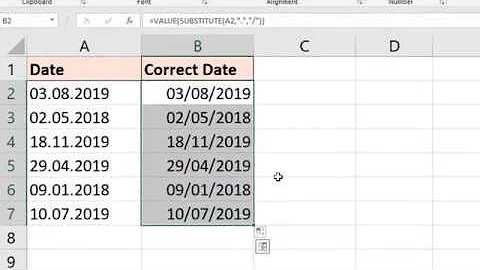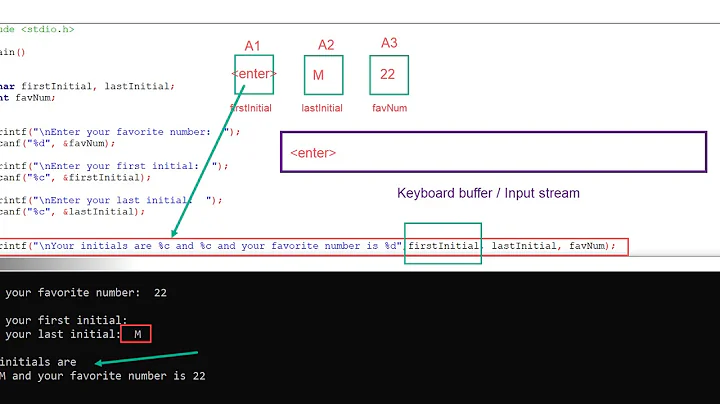error: unknown conversion type character 'l' in format - scanning long long
Solution 1
Just wanted to add this snippet too:
MinGW-w64 - for 32 and 64 bit Windows / [Mingw-w64-public] -Wformat and %llu
the issue is that formatter-width specifier %ll isn't supported for all msvcrt-DLL versions, therefore gcc warns about its use. The variant for specifying 64-bit integer-scalar-width in formatter for msvcrt in a backward-compatible way is by using %I64.
Use %I64u on Windows, or just use inttypes.h PRIuMAX.
If you must use %llu, define __USE_MINGW_ANSI_STDIO macro before including stdio.h. Be aware that if you do this, MS type %I64* format will no longer work.
Solution 2
for SCNd64 and similar, you'd have to use
#include <inttypes.h>
but all of this is only supposed to work if your compiler supports C99. Your first error message is a strong indication that it doesn't, or that you didn't give the right commandline switches.
Related videos on Youtube
Tomáš Zato
It might be easier to hire new management than to get a new community of volunteers. - James jenkins If you play League of Legends, check my repository: http://darker.github.io/auto-client/ I no longer play and I am actively looking for someone to maintain the project. It helped thousands of people, literally.
Updated on June 03, 2022Comments
-
Tomáš Zato about 2 years
I'm trying to get
long longfrom the console using standard IO functionscanf. I started with%lld:scanf("%lld", &rule);That throws:
error: unknown conversion type character 'l' in format [-Werror=format=]I've found more workarounds, but they too throw errors:
scanf("%I64d", &rule); ->error: ISO C does not support the 'I64' ms_scanf length modifier [-Werror=format=] scanf("%"SCNd64"", &rule); ->error: expected ')' before 'SCNd64'Am I doing something wrong? Is there an another trick?
I'm compiling on very recent version of MinGw GCC with these flags:
-pedantic -Wall -Werror -std=c99 -g -D HOME=1-
hobbs about 10 yearsTry using something like
-std=gnu99instead of c99. -
 WhozCraig about 10 yearsIf
WhozCraig about 10 yearsIfruleisint64_tinstead, tryscanf("%" SCNd64, &rule);Be sure to includeinttypes.handstdint.h. See this for more info. It should be supported in C99. -
James King about 10 yearsI deleted an answer I had posted; what you are doing complies and executes fine for me with the same gcc options on Linux, so I'm thinking it's something to do with MingW.
-
M.M about 10 yearsYour implementation is not C99-compliant. Are you sure that
-std=c99is being passed when the first error message is generated? -
Tomáš Zato about 10 yearsIt would be not the first time when the compilation passed very differently on windows and linux.
-
Tomáš Zato about 10 years
-std=gnu99yields the same errors. -
 Joseph Quinsey over 7 yearsPossible duplicate of printf and %llx in GCC under Windows 64x
Joseph Quinsey over 7 yearsPossible duplicate of printf and %llx in GCC under Windows 64x
-
-
 Pascal Cuoq about 10 yearsIt doesn't: MinGW re-uses as many software components from Windows as possible, and this includes the C runtime. MinGW's GCC is a chimera of a C99 compiler with a non-C99 standard library.
Pascal Cuoq about 10 yearsIt doesn't: MinGW re-uses as many software components from Windows as possible, and this includes the C runtime. MinGW's GCC is a chimera of a C99 compiler with a non-C99 standard library. -
Tomáš Zato about 10 yearsUnfortunatelly, after including
inttypes.h, I'm getting the same errors as before. How can it be possible for a compiler being unable to do such a trivial thing? The command line switches must be kept - the same switches are being used on evaluation server (I'm doing a programming homework). -
Jens Gustedt about 10 yearsAs Pascal says, your platform includes components from Windows that aren't C99 compliant. On the evaluation server, if this isn't on a Windows system, you might have more luck.
-
Rajesh over 6 yearsEven though we get warning for lld, I observed that correct value is printed (MinGW. In below case, the result printed is 6442450950 unsigned long long var6=2147483650*3; printf("var6 =%lld\n",var6);
-
PypeBros about 6 years@rajesh, that's because the libc, not the compiler, does the printing. The libc does the job as the implementation says. The compiler additionally check whether a <standard>-compliant library would correctly handle formatting strings.
-
Rajesh about 6 yearsI think these issues/features make C language more bug prone.

![[5 Minute Tutorial] Regular Expressions (Regex) in Python](https://i.ytimg.com/vi/UQQsYXa1EHs/hq720.jpg?sqp=-oaymwEcCNAFEJQDSFXyq4qpAw4IARUAAIhCGAFwAcABBg==&rs=AOn4CLCrqTtVePMHIes4pzJB45i4VXdFmg)










![[Tutorial] Error Type 3 Android Studio {} 2 Ways Easy To Fix](https://i.ytimg.com/vi/_pkqn7taINM/hq720.jpg?sqp=-oaymwEcCNAFEJQDSFXyq4qpAw4IARUAAIhCGAFwAcABBg==&rs=AOn4CLCmoO7A7N8kOA8V45g5aU_RBJFtGA)

